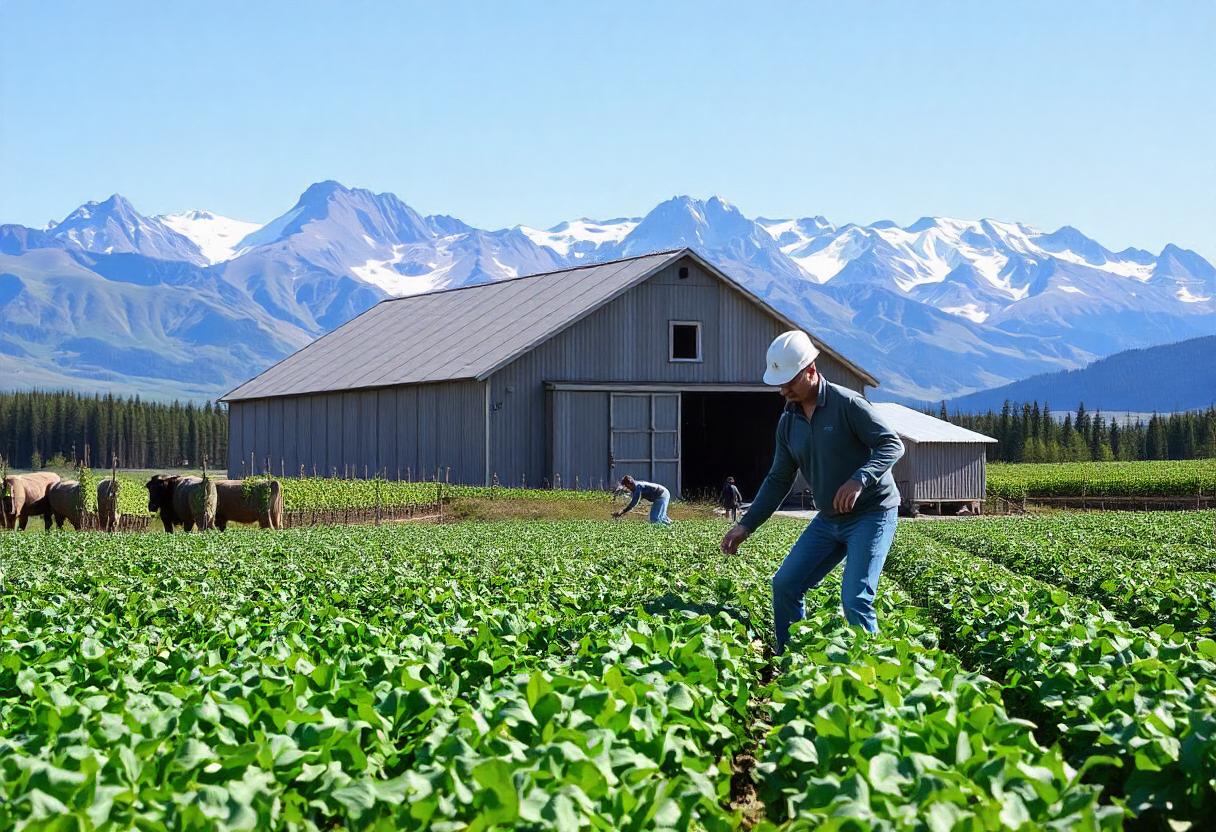
Agriculture engineering is a critical field in Canada, given the country’s vast and diverse agricultural landscape. This discipline combines principles of engineering and agricultural science to improve farming practices, enhance productivity, and address environmental challenges.
Historical Context and Evolution
The development of agriculture engineering in Canada has evolved significantly over the years. Early agricultural practices in Canada relied on traditional methods, but with the advancement of technology, the role of engineering in agriculture has become increasingly prominent. From the introduction of mechanized equipment in the early 20th century to the integration of modern technologies such as precision farming, the field has continuously adapted to meet the changing needs of the industry.
Key Areas of Focus
Mechanization and Equipment
One of the primary areas of focus in agriculture engineering is the design and optimization of agricultural machinery and equipment. This includes tractors, harvesters, and irrigation systems. Engineers work to enhance the efficiency, durability, and safety of these machines, which are essential for large-scale farming operations.
Precision Agriculture
Precision agriculture involves using technology to monitor and manage field variability in crops. This includes GPS-guided machinery, remote sensing, and data analytics. Agriculture engineers develop and implement these technologies to optimize the use of resources such as water, fertilizers, and pesticides, leading to increased crop yields and reduced environmental impact.
Sustainable Practices
Sustainability is a major concern in modern agriculture, and engineering solutions play a crucial role in addressing environmental challenges. Engineers work on developing sustainable farming practices that reduce soil erosion, improve water management, and minimize the use of harmful chemicals. Innovations in this area aim to create more resilient agricultural systems that can withstand climate change and other environmental pressures.
Food Processing and Storage
Agriculture engineering also encompasses food processing and storage technologies. Engineers design systems for the efficient processing, packaging, and storage of agricultural products to ensure food safety and extend shelf life. This includes advancements in refrigeration, drying technologies, and automated processing systems.
Educational and Professional Opportunities
Canada offers several educational pathways for those interested in pursuing a career in agriculture engineering. Universities across the country provide specialized programs in agricultural engineering, where students can gain expertise in the various aspects of the field. Additionally, there are opportunities for professional development through industry associations and certification programs.
Industry Impact and Future Trends
The impact of agriculture engineering on Canada’s agricultural industry is significant. Engineers contribute to increased productivity, reduced environmental impact, and enhanced food security. Looking ahead, the field is expected to continue evolving with advancements in technology and a growing emphasis on sustainability and efficiency. Emerging trends include the integration of artificial intelligence, robotics, and renewable energy sources into agricultural practices.
Agriculture engineering remains a vital and dynamic field in Canada, driving innovation and progress in the country’s agricultural sector.